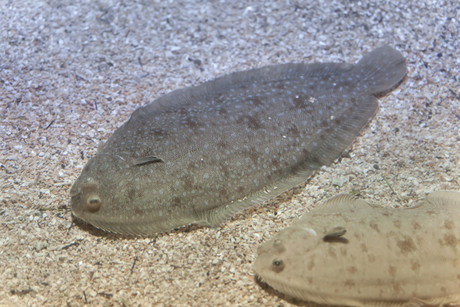Why fish personality counts

I didn’t realise that fish even have distinguishable personalities, but apparently they have. And, at least for Senegalese sole, their personalities are fairly stable over time and determine how they handle stress.
I am curious about how you assess fish personality, but aquaculture researchers from the University of Stirling and the Institute for Food and Agricultural Research and Technology (IRTA) in Catalonia have reported correlation between how individual fish with the same sort of personality acted across the various tests, suggesting that those who are reactive and fearful, or proactive and curious, maintain this behaviour.
The researchers want to breed fish that cope well in captivity and so improve aquaculture production. Around 120 Senegalese sole took part in five individual behavioural tests and two grouping tests. Cortisol, glucose and lactate in the blood were measured at the end of the tests to measure the stress response.
Dr Sonia Rey Planellas, Research Fellow in the Institute of Aquaculture, said: “Senegalese sole is a very valuable fish farmed across Europe; however, first-generation males’ failure to reproduce is still a problem affecting production of the species. Animals who are proactive and try to explore are likely to reproduce in captivity so it’s important these fish can be identified at a young age.
“The three tests we used to simulate life in captivity were easy to apply and required no special equipment. We hope this can be replicated by fish farmers, large and small, to help establish selection-based breeding programs and easily identify fish that deal best with stress and will be able to reproduce more successfully in a variety of environments. These Operational Behavioural Screening tests (OBST) can also be used for other species of interest facing similar problems on domestication and production.”
The research, which also involved researchers from the Spanish Institute of Oceanography, has been published in Royal Society Open Science.
Kerry drives innovation to meet demand for lactose-free products
With rising consumer demand for lactose-free products, Kerry drives dairy innovation Australia...
Four key flavour and colour trends for food & bev in 2025
ADM has released its flavour and colour trends report for 2025, outlining the four key trends...
Making 'scents' of non-alcoholic versions of beer or wine
Food and beverage researchers are working to recreate the enjoyable aromas and flavours that can...














